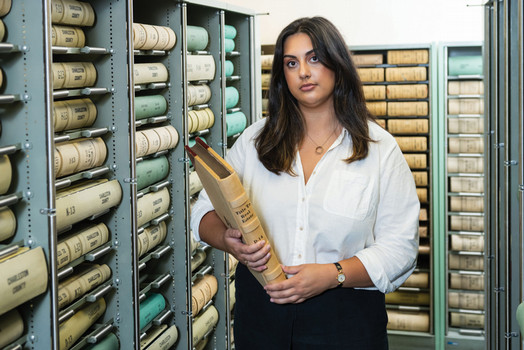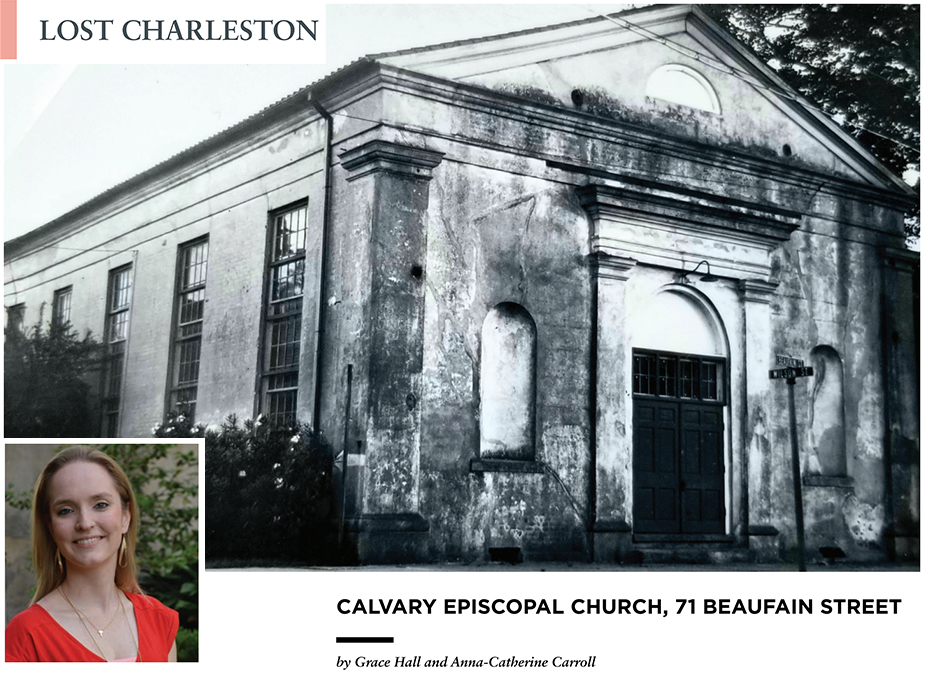Master of Arts in History
33 Credit Hours
Students in our Master of Arts program are challenged in ways that enhance their education and provide access to the larger scholarly discussion in historical scholarship. This program features small classes rich in stimulating discussion and analysis. The City of Charleston provides ample archival resources, research sites, and employment opportunities.
The history faculty offer a wealth of expertise in United States history, European history, and global history. The faculty has research specialties in a variety of fields, including:
- Public History
- Southern History
- African-American History
- History of the Atlantic World
- History of Religion
- History of Popular Culture
- African History
- European History
- History of Gender and Sexuality
- History of the Twentieth Century
The Master of Arts in History provides an excellent preparation for students who choose to continue their education by pursuing doctoral study in history, pursue opportunities in public history, or continue in an already established career.


Lauren Davila
The College Today has a wonderful article on former student Lauren Davila, who earned her B.A. & M.A. right here in the Department of History. As a graduate student, Lauren, 'uncovered the largest known domestic slave auction, which took place in Charleston.' Click to read more!
A Historic Discovery
Public History Concentration
Students enrolled in our Public History concentration will gain experience in the field through community-partner coursework, graduate assistantships, and internship positions in a variety of public history institutions in and around the city of Charleston. The concentration collaborates with several resources on campus, including:
- The Avery Research Center
- The South Carolina Historical Society Archives
- The Lowcountry Digital History Initiative
- The Center for the Study of Slavery in Charleston


Graduate Student pens article for PSOC
During her time as a graduate student, Grace Hall completed a public history internship with the Preservation Society of Charleston. Her research was featured in their Fall 2020 issue of Preservation Progress.
Lost Charleston by Grace Hall
Prospective Students
-
Admissions & Courses
Prospective students should take a look at this important info on our program:
-
Graduate Historical Society
The Graduate Historical Society is a student organization for our graduate students. The group hosts professional and social events in conjunction with the History department and other student organizations.
Graduate students are encouraged to attend our society events, since building relationships and fostering a sense of intellectual community is a key to success in the program. Examples of the yearly functions hosted by GHS include a kickoff party at the beginning of the school year, a Relay for Life team in the spring, and ghost tours during Halloween.
If you are interested in becoming active with GHS, follow our Facebook page for details.
Join GHS -
Funding Opportunities
The College of Charleston offers several funding options for graduate students. Apply by the priority deadline to be considered!
Graduate students can also review financial aid options, including loans, through the Office of Financial Assistance and Veterans Affairs.
Funding Opportunities -
Graduate Assistantships
Our M.A. program offers several paid Graduate Assistantships. In addition to providing opportunities to work closely with faculty on research projects, students can gain valuable public history experience at the following sites on campus.
Graduate Assistantships -
Student Jobs
Several students have taken advantage of the location of the College of Charleston and secured part-time positions at public history sites around the city as they complete their graduate studies:
-
Internships
All public history concentration students enroll in an Internship Experience course during their second semester. Working in collaboration with the Public History Coordinator, students are paired with community sites to work on projects that will enable them to advance their research and to develop skills relevant to their fields of interest.
These partnerships have resulted in some wonderful projects:
- Mills Pennebaker: Voices of Southern Hospitality
- Jonah Trimnal: Finding Aid for Native American Resources
- Jack Schafer: Middleton Place Video Project
- Joshua Parks: Anson Street African Burial Ground
-
Community-Partner Classes
A community-based public history course will be offered at least once during the two-year M.A. cycle. In these courses, students work collaboratively on a public history project for a local institution. The projects and the skills developed in these courses are great additions to students’ resumes. Here are some types of courses that have been offered along with the skill-development emphasized in each one:
Working in collaboration with the Center for the Study of Slavery in Charleston, students created a master list of important sites relating to the history of slavery and its legacies in Charleston from assigned secondary sources. Each student then conducted extensive primary research on five sites and wrote essays on each of these properties (extant and non-extant) for a series of tours. These peer-reviewed essays are available through the college’s Curatescape site.
This partnership with McCleod Plantation Historic Site enabled students to learn how to conduct genealogical research, specifically on persons buried in the on-site cemetery to identify living descendants. This was a critically important step in the site’s effort to develop a preservation plan for the cemetery. With weekly readings from the fields of history, archeology, anthropology, and folklore on regional African American history and culture, students learned how to situate the genealogical research in the larger historical context.
This was the first community-partner class, which was a collaboration with the Preservation Society of Charleston. In it, students conducted property research along Cannon Street in downtown Charleston to contribute to the Morris Street Business District project for the Lowcountry Digital History Initiative. In addition to learning property-research skills in local archives, students were introduced to the theory and practice of place-based history through secondary readings. -
Thesis Projects
As a part of the thesis requirement, public history concentration students develop public-facing projects on their research topics. To help prepare for this, students in the Introduction to Public History course conclude the semester by creating smaller-scale projects based on research topics they have worked on over the course of the semester. Although the following are all digital examples, students can choose among a variety of potential project types for their thesis projects.
- Mills Pennebaker: Black Resistance in Charleston’s East Side
- Noah DuBois: A Southeastern Catholic in King Cotton's Court
- Grace Hall and Danielle Cox: Charleston Justice Journey
-
Apply to The Graduate School
Ready to take the next step? Apply today!
The Graduate School